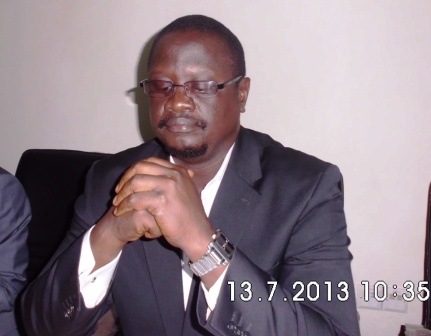The Global Integrity Report 2011: Sierra Leone
The Global integrity Report (GIR) is an annual assessment of public policies and practices that are implemented in countries around the world to prevent and punish corruption. It is an instrument that is useful to a variety of stakeholders such as civil society groups, the media, and governments in identifying areas prone to corruption and what measures need to be instituted to promote transparency and accountability.
Based on 320 indicators used to determine the effectiveness and efficiency of anti corruption mechanisms annually more than 30 countries across the world are assessed in terms of how much progress has been made in anti graft programs. These assessments and the ensuing reports are important because it provides information on anti corruption initiatives in countries and equips the media, civil society organizations, religious leaders, youth groups and other stakeholders to demand from their respective governments’ accountability. It is also important because international organizations for example the World Bank use the information to develop policies and decide on the level of funding aid or grants made available to countries. The GIR report does not measure corruption but examines the effort and tangible evidence to show what countries have done to tackle corruption. Methods used to collect the data and information includes research surveys and qualitative reports by journalists on how corruption affects the daily lives of the ordinary citizen. The Global Integrity report is therefore also useful to investors, donors, students academics journalists and civil society advocates.
An implementation gap for each country is also included in the report. This is the difference between the legal framework provided to ensure good governance and prevent corruption and the actual enforcement of the legal provisions. The measurement of the implementation gap is significant because it helps to show how citizens bring into play their rights as well as the degree of political will for governance reform.
In March of 2012, the GIR for 2011 was first published. Sierra Leone is one of the countries assessed and a look at the scorecard shows that:
- The existing legal framework is rated with a score of 73 due firstly to the existence of the 2008 Anti Corruption Act which has been acclaimed as one of the toughest on the continent. The independence of the judiciary and citizen’s access to justice has also contributed to this score which is described as been moderate. However there is a lower score of 58 in law enforcement, safeguards against conflict of interest within the judiciary, the legislative and executive branches of government.
- Government over sight and controls provided through the office of the ombudsman, audit service, oversight of parastatals and business licensing regulations are also ranked as moderate with a score of 70.
- However, in the area of public administration, controls against conflict of interest again in civil service are considered weak alongside the poor provision for whistle blowers.
- Media reporting on corruption carries a score of 74 but this is marred by the lack of a Freedom of Information Act. This gives emphasis to the critical need for the promulgation of the Act to afford citizens access to public sector documents for improved monitoring and transparency.
These findings among others led to Sierra Leone been considered as the country with the most decline in performance. This is an eye opener to the people of Sierra Leone that much more needs to be done especially by civil society to confront corruption. As long as the Anti Corruption Commission is seen as the sole and only body with the responsibility of fighting corruption, little progress will be made in advancing the development of the country. There is therefore the need for the commission to have the fullest support of complementing agencies in the fight against corruption such as the judiciary, the office of the Ombudsman, the audit service, the Sierra Leone police, security sector, the Bank of Sierra Leone to name but a few.
The Global Integrity report does not assess the performance of the Anti Corruption but rather that of the country Sierra Leone. There are several benefits that can be derived from the Global Integrity report. Firstly it identifies the strengths and weaknesses of a country’s anti corruption and public integrity system and gives a direction to possible reforms that can be undertaken to address the problems. It presents a comparative basis on which a country’s progress in anti corruption could be assessed. It also underscores the urgent need and call for the freedom of information bill to be passed in parliament as a first step in guarantying transparency. Above all, strategies can be developed to ensure the adaptation of international best practice in anti corruption mechanisms to the local context with the meaningful involvement of private sector stakeholders in the policy making process around transparency, accountability, good governance and anti corruption.
Stakeholders who are the citizens of this country; opinion leaders, the government, the public service commission, donors, and the private sector are to stimulate discussion and debate on the results of this report and make a commitment to improve on reform efforts to put Sierra Leone on a higher ranking against the next rounds of assessment.
ACC, Freetown
Stay with Sierra Express Media, for your trusted place in news!
© 2012, https:. All rights reserved.



